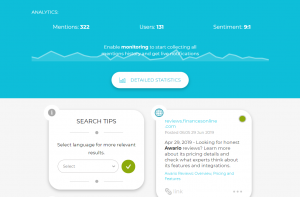There’s plenty of good advice about best practices in marketing. It’s also important to be aware of what not to do.
There are plenty of articles about what one should do in marketing — best practices, hacks, tips, tricks and so on. However, sometimes it is helpful to think about this in another way. In other words, what one should not do.
Here are a few ideas of what not to do in marketing operations.
1. Don’t forget the legal department
Legal and marketing departments have a love-hate relationship. Marketers tend to want to move quickly, collect and use lots of data and be coy about disclosures. Most lawyers approach those things from a different and more cautious perspective in order to protect the organization from risk and trouble.
View legal as a valued partner — not a dream killer. In my experience, the lawyers I’ve worked with understand the importance of marketers’ goals, and they are willing to collaborate to find viable and suitable tactics and solutions.
Besides, what’s the point in protecting an organization that doesn’t generate revenue and profit? Most lawyers will work in good faith since they know promoting the organization is as important as protecting it.
2. Don’t blow off sales
The sales department is a crucial partner of marketing. Marketers lure people in. Salespeople close the deal. Yet, the KPIs for these departments are sometimes misaligned.
For instance, marketers want to eliminate friction on lead forms by removing fields requesting ancillary or nice-to-know information, which can help them meet their objectives. However, some of this information can help folks in sales focus their attention and close deals.
So, marketing and sales must find a balance so that both departments’ needs are met. They need each other to succeed. Collaborating takes time and effort, but it is well worth it.
3. Don’t fail to anticipate resistance to change
Marketers are movers and shakers. They want to move fast — even if it breaks things occasionally. However, not everyone is like that.
When pushing for change, marketers need to understand that resistance is the natural human response to any change — good, neutral, or bad, regardless if it is actual or perceived. Even in bad situations, one at least knows the devil they’re dealing with and a new devil may be worse.
Fortunately, there’s a discipline to help with change and resistance to it — change management. Some professionals and frameworks help anticipate and respond to resistance to increase chances of adoption and success. I recommend looking into it.
4. Don’t hoard information
Imagine what the world would be like if everyone had to reinvent the wheel repeatedly. That doesn’t sound fun or efficient.
One place to share information is within the organization. Despite what some people think, no one can read minds. That’s why it is marketing documentation is vital. Document needs, requirements, lessons learned, people involved, etc., to help others understand what’s needed, problems to avoid and efficiencies learned.
Outside of an organization, martech is complex and evolving. That’s why it is necessary to share wisdom and other lessons learned with others. This can involve hiring an intern, speaking at an event or participating in professional communities. Maybe you could contribute articles to trade websites.
Hoarding information benefits no one. It may make you more indispensable to your employer, but that may mean you get bugged at inopportune times. Further, it also inhibits teams and organizations from achieving their goals.
5. Don’t overlook business objectives
The funny thing about business objectives and requirements is that they sometimes seem too obvious to document or discuss. Why would anyone request anything without a purpose? Why isn’t that purpose obvious to others?
When proceeding with a martech or marketing operations project, understanding the business purpose of the effort is paramount. That helps everyone understand the big picture so that people can make innumerable smaller decisions that everyone cannot weigh in on.
Further, documenting the business purpose can help determine whether the project is successful. Additionally, other stakeholders like the organization’s board, legal, financial and information security will undoubtedly want to know why they’re spending money and time on such efforts.
As annoying as it may seem, discuss and document business objectives — even if that seems overkill.
Stay mindful of the dos and don’ts
There’s plenty of good advice about what to do, and sometimes the advice on what not to do is as important.
The post 5 don’ts in marketing operations appeared first on MarTech.
MarTech(3)






